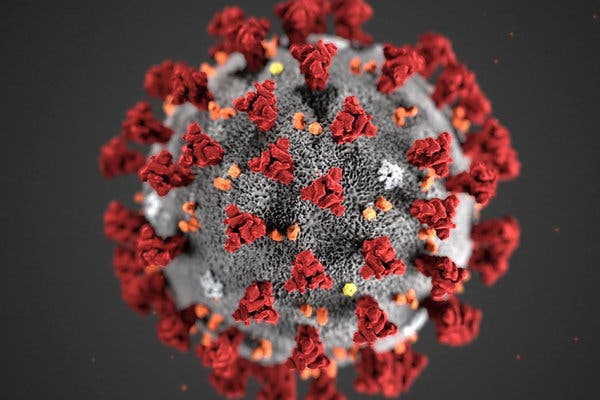Many scientists across the world have said that protection against the SARS-CoV-2 virus through either infection or COVID19 shots is vital to end the pandemic. The COVID19 pandemic has been creating havoc in the world for the last two years. Now, a team of experts from the University of Zurich (UZH) has found that there might be one more element that might be liable for the immunity against the COVID19 virus. They have said that past antibody reactions to other nontoxic human coronaviruses might play a vital role in boosting immunity against COVID19. The chief of the Institute of Medical Virology from the University of Zurich, Dr. Alexandra Trkola has said that people who have produced robust immune reactions to other viruses that result in infections like the common cold might as well have some sort of protection against the SARS-CoV-2 virus. In the new study, health experts have used a specially designed test to track the levels of antibodies against four other forms of human coronaviruses. They have pulled out 825 serum samples before the SARS-CoV-2 virus has hit the world. They as well have tested nearly 389 serum samples of people who have been detected with COVID19. They have combined these tests along with computer-based models.
These models have helped experts correctly envisage how well the antibodies will attach to and eliminate other deadly pathogens. The authors of the new study have noted that people who have been infected with the SARS-CoV-2 virus have been found with lower levels of antibodies against viruses that can lead to the common cold as compared to people who have not been infected with COVID19. The results of the new report have shown that people who have been found with high levels of antibodies against harmless human coronaviruses have been at a lower risk of being hospitalized after being infected with the SARS-CoV-2 virus.
Health experts who have been part of the new report have said that the findings of the study show that a robust antibody reaction to other human viruses that can result in common cold shoots up the levels of immunity against the virus that leads to COVID19 disease. Dr. Alexandra Trkola has said that it is evident that people who have obtained strong immunity against risk-free viruses that lead to the common cold are better protected against fatal COVID19 infections. She has said that this form of immunity is often taken as cross-reactivity and it takes place with T cell reactions. The T cell reaction is considered an additional line of defense of the immune system against deadly diseases. Many past studies have shown that people are immune to the SARS-CoV-2 virus after they have recovered from COVID19 or have been immunized with COVID19 shots. People are prevented from the SARS-CoV-2 virus when the levels of antibodies are quite high. As the levels of immunity start to drop over time, people are not fully protected against the deadly virus. In the case of waning levels of antibodies, the immunological memory rapidly stimulates the defense of the body, the T cell response, and the production of antibodies all over again. But, the authors of the new study have said that immune reactions against the SARS-CoV-2 virus that are escalated by the memory cells are far more efficient as compared to cross-reactive retorts.
Although the immunity is not absolute, cross-reactive immune reactions can cut down the duration of infection. It can reduce the severity of COVID19 as well, said the experts. It is similar to what people gain after being immunized; however, it is much more effective via vaccines. Experts have said that it is unclear whether cross-reactive immune response works in the reverse path as well. The authors of the study have said that whether immunity against the SARS-CoV-2 virus that is derived from vaccines offers defense against other human coronaviruses as well needs to be clarified.
Experts from the University of Zurich (UZH) have said that if the protection against the SARS-CoV-2 virus provides some sort of immunity against illnesses that are caused by other harmless human coronaviruses, it will be a major step closer to gaining inclusive defense against other viruses that lead to infections such as a common cold.
Such an inclusive defense will prevent infections that are caused by other new strains of the SARS-CoV-2 virus as well. The lead author of the study Dr. Alexandra Trkola has said that the idea is backed by the fact that cross-reactive immune reaction is not only dependent on the levels of antibodies but it also relies on the T cell immune reaction. The new study has been backed by the Pandemic Fund of the University of Zurich. The Swiss Red Cross and the University Hospital Zurich as well have funded the study. The Swiss National Science Foundation (SNSF) and Gilead as well have contributed to the funding of the study. The findings of the new study have been released in the journal known as Nature Communication.
